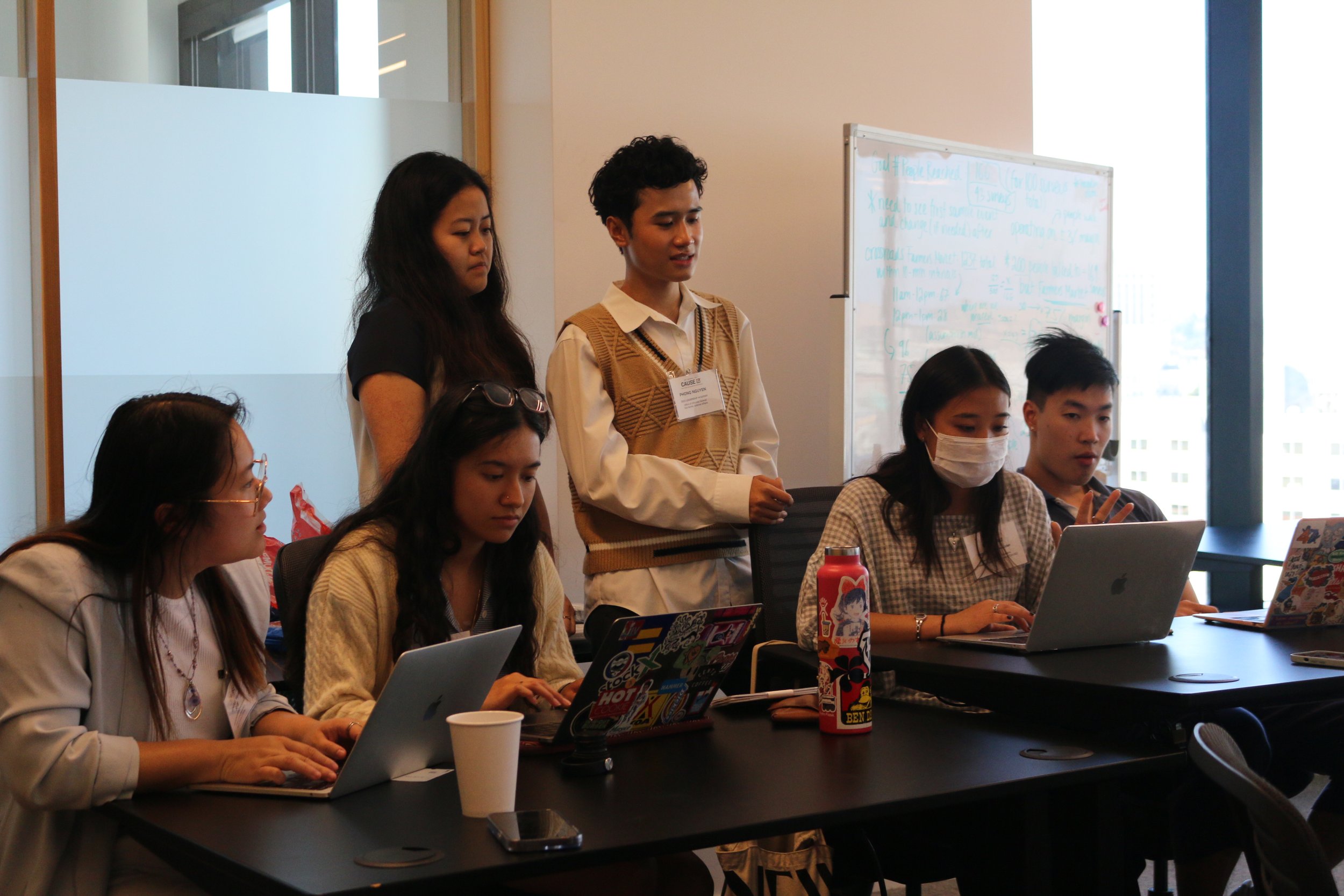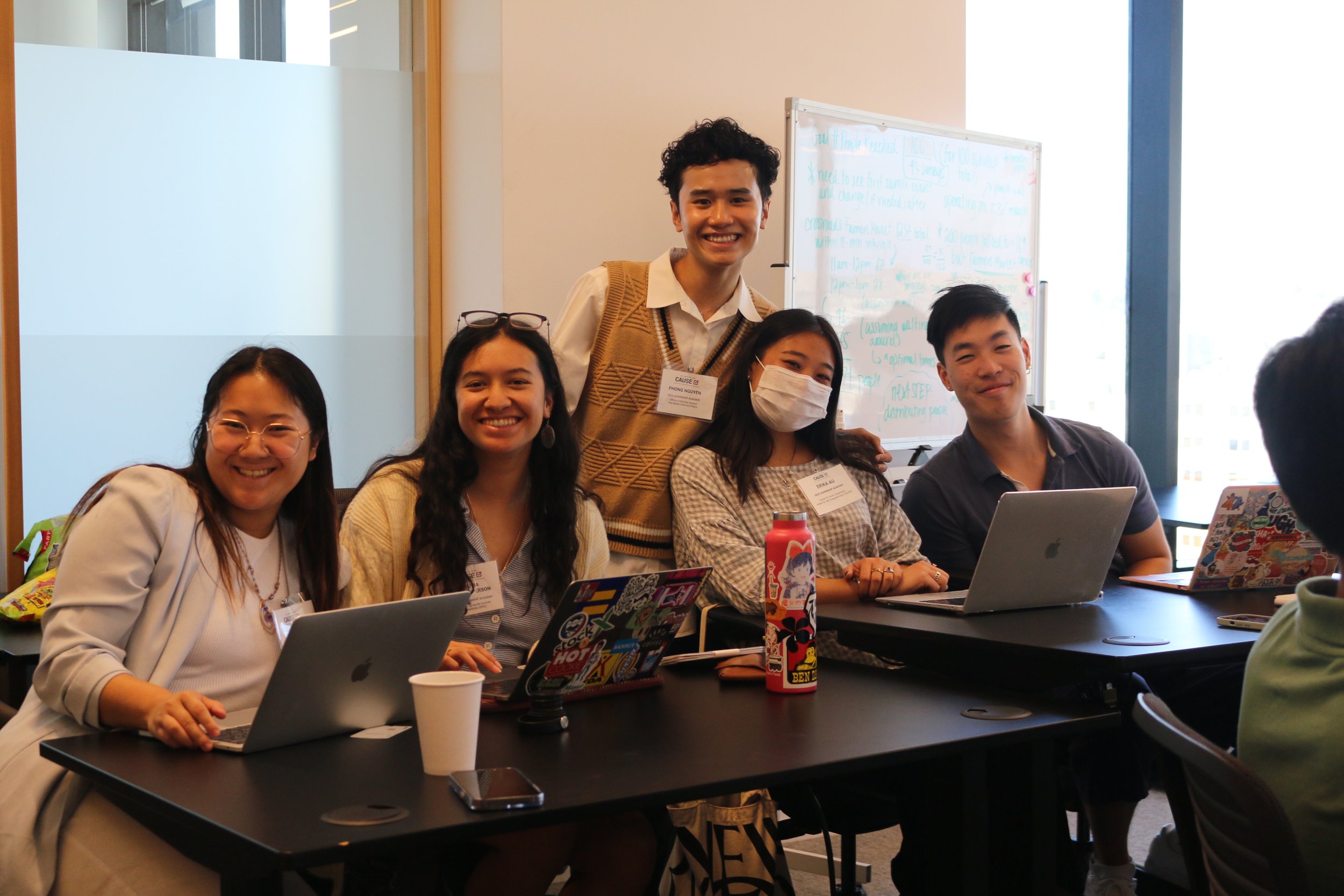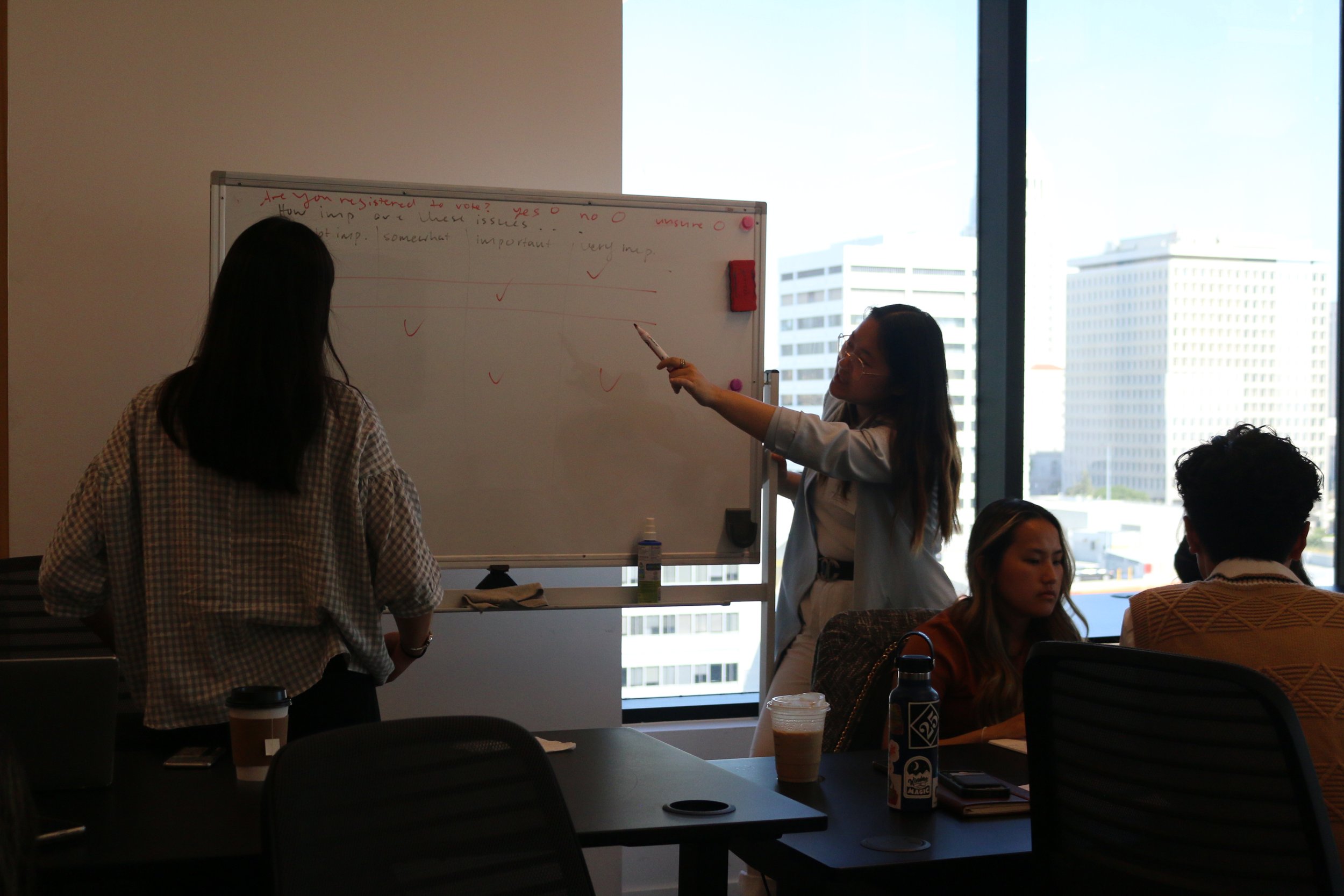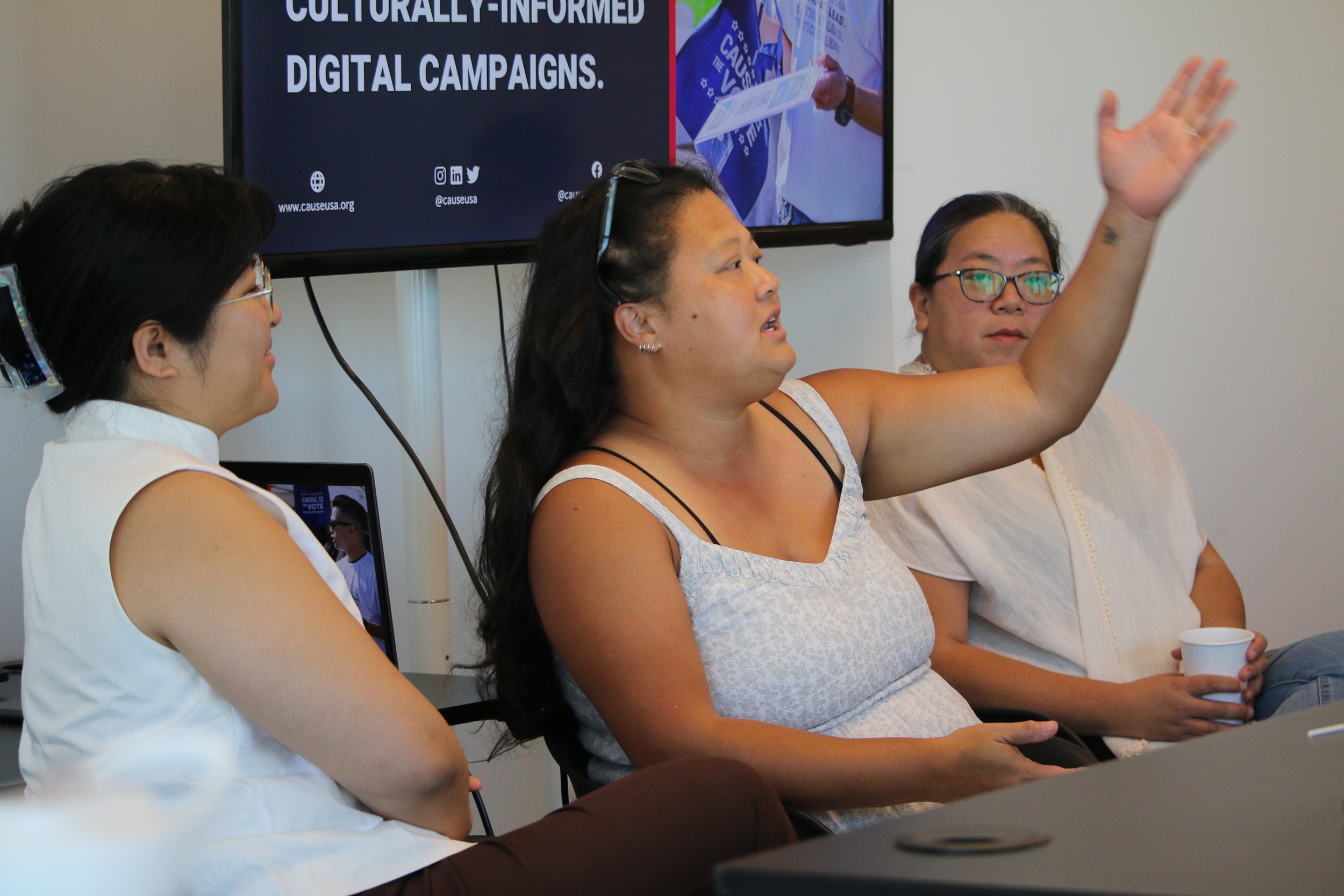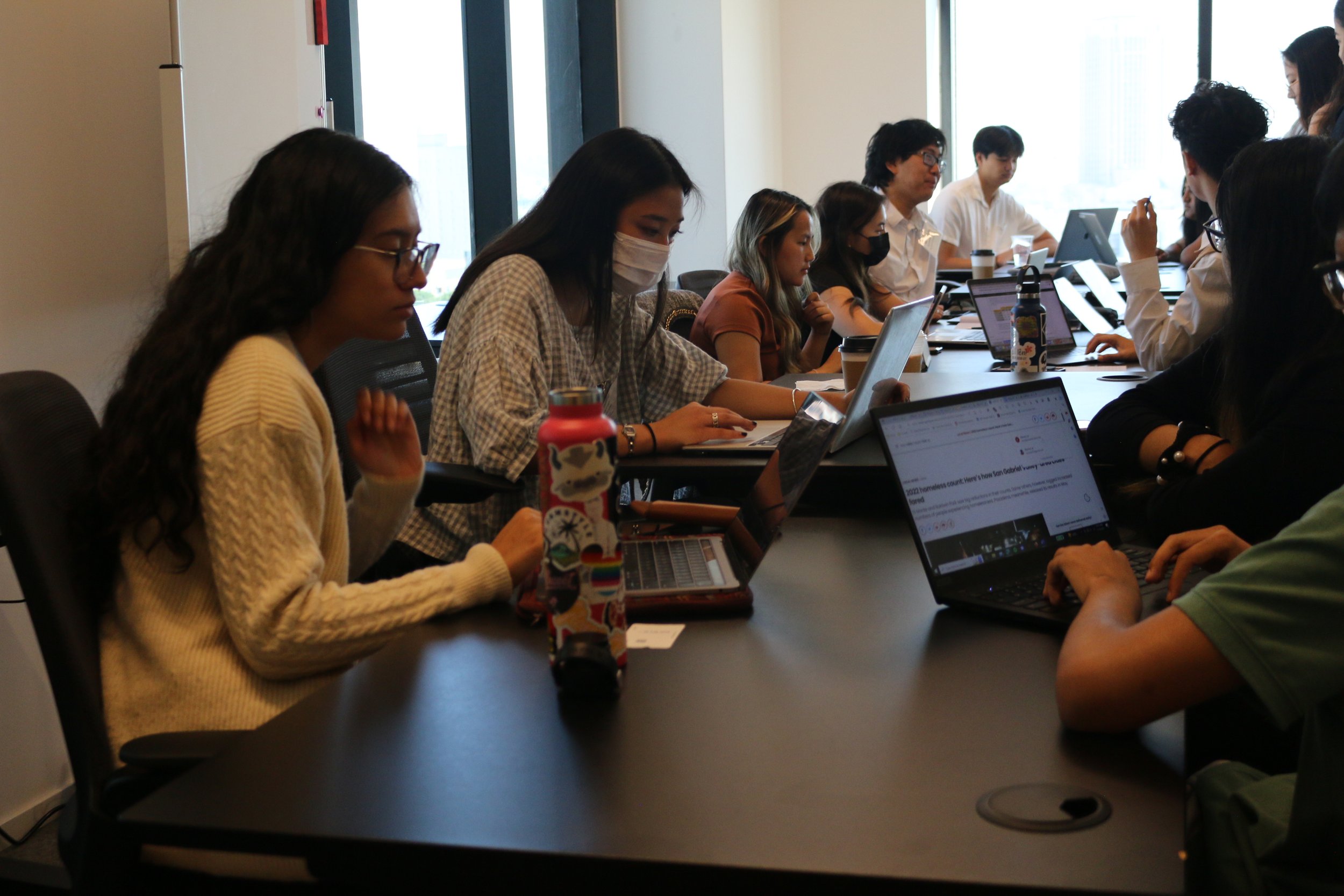CLA Interns William Chao, Liam Chia, and Erika Au during Congressman Jimmy Gomez’s Town Hall.
“Do we have a mechanism for listening to our communities?” - Dr. Juily Phun
Looking back at the CLA Week 4 sessions, I realized that the work of guest speakers like Dr. Phun (Assistant Professor of Asian American Studies at California State University LA and partner for CAUSE on Campus), CAUSE Executive Director Nancy Yap, CAUSE Marketing and Communications Manager Farrah Su, and Calvin Chang (Data Analytics Director for the Native Hawaiian and Pacific Islander Data Policy Lab at the UCLA Center for Health Policy Research) is, candidly, essential to keeping AAPI voices heard and prioritized.
Spaces for AAPIs to coalition-build and advocate for our communities may be in place on paper. Still, the speakers’ accounts of the 2021 attempts to redistrict the San Gabriel Valley demonstrate that on-the-ground work surpasses detached representatives in creating change. We, as AAPIs, do not have to agree on every policy issue simply because of one marker of identity, but, we do deserve the opportunity to even realize that and make that distinction.
“Give us the ability to fight with each other!”
CLA Interns Olivia Diaz Anderson, Erika Au, and Pa Houa Lee during a CLA session.
Efforts to gerrymander and disperse our political power are a direct attack on not just voting rights, but also AAPI representation. CAUSE’s involvement in redistricting was eye-opening because it emphasized the notion that agency to determine our own trajectories should be fostered by constituents, community leaders, and people who are most vulnerable to political malpractices.
“Don’t talk for us, let us have the agency to decide for ourselves.”
Calvin Chang from the NHPI Data Policy Lab opened my eyes to the severity of NHPI exclusion in not just AAPI political representation but in all facets of data collection and research. Disaggregated data, which can already be accounted for in data collection, is not released due to the misconception that distinct ethnolinguistic communities are homogenous in the broader AAPI category. Similar to the concepts that we learned during the redistricting session, Calvin demonstrated how the inability to empower communities with intentional data and research leads to funding and narratives that don’t reflect the actual voice of the community. Underserved communities need culturally-competent initiatives driven by mindful leaders. Despite disaggregated data already existing in databases, those in control of publishing the information do not consider NHPI communities' needs. Health policies, especially, have dramatically different effects across communities that fall under the AAPI categories. For example, COVID-19 statistics are disproportionately representative of NHPIs versus the general AAPI label. The data informs policy and narrative, therefore shaping sentiment that falsely justifies funding for NHPI resources as inessential.
Calvin Chang from the Native Hawaiian and Pacific Islander Data Policy Lab at the UCLA Center for Health Policy Research presenting his work to CLA Interns.
With more insight into the importance of utilizing disaggregated data and protecting voter rights, I can better understand how transparency, or a lack of it, is inextricably linked to limiting opportunities for marginalized communities. The speakers taught me that there is always room for improvement and that representation is not a quota, but a vessel for empowerment.
The 2023 CLA Interns posing.
The views and opinions expressed in this publication are those of the author and do not reflect the views or positions of CAUSE or the CAUSE network.
Written by Erika Au, Leadership Academy 2023 Intern.
The CAUSE Leadership Academy (CLA) for students is a nine-week, paid, internship program that prepares college undergraduates to lead and advocate for the Asian Pacific Islander community on their campuses and beyond.






